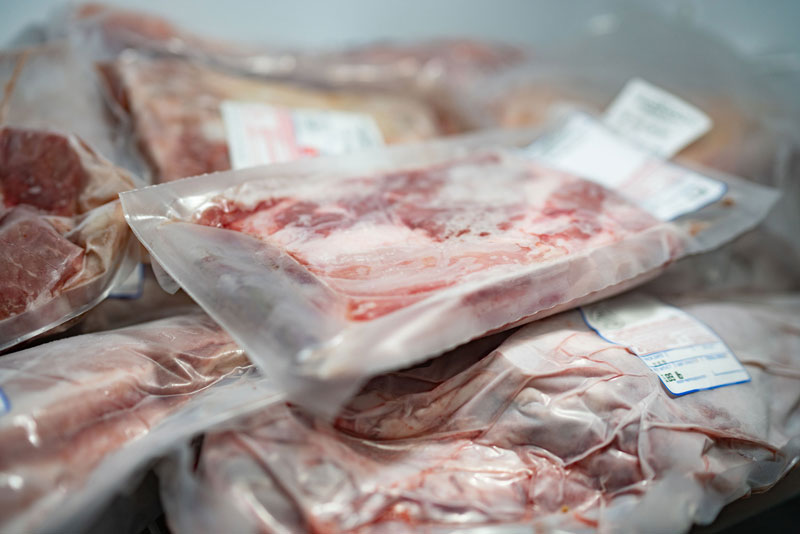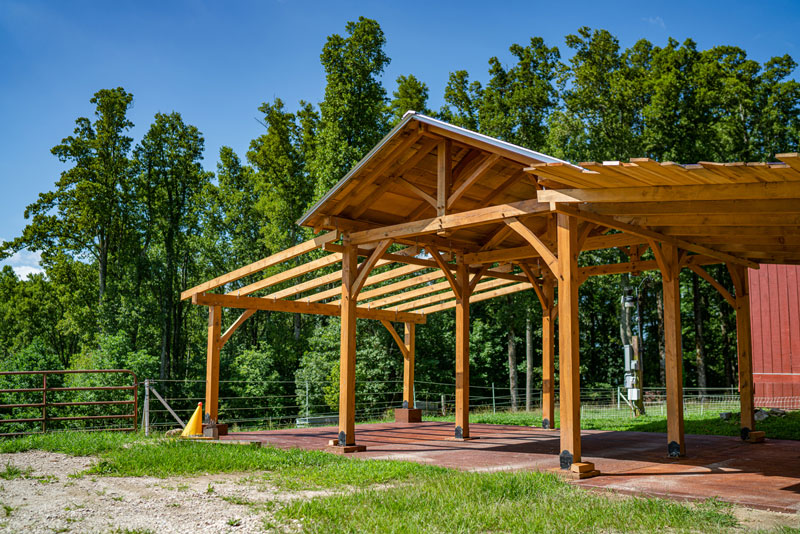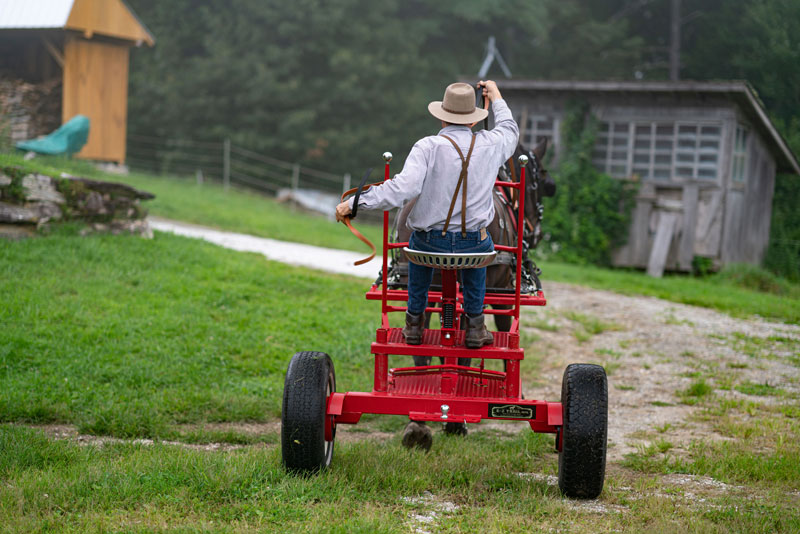About
Banks Mountain Forest Farm is guided by an ethic
of farming in sustainable balance with nature.
A “forest farm” like the 34-acre Banks Mountain Forest Farm is guided by an ethic of farming in sustainable balance with nature. Cultivating forest crops-and raising livestock in both open pasture and under a canopy of mature trees-is part of a broad silviculture plan that emphasizes the long-term health of the native plants and animals that call Banks Mountain home.
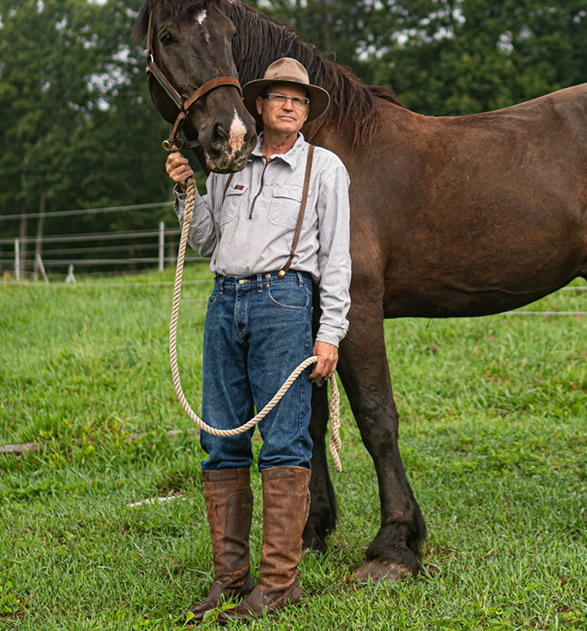
Bob Richens
As a teenager growing up in the Southeast, Bob had a strong desire to be in the outdoors, whether it was operating a chainsaw to burn wood for home heating or plowing the ground to plant a garden. This motivation didn’t arise from anything his family did or showed him; Bob believes that his love of working outside was simply embedded in his soul and spirit. His fascination with the outdoors expanded with his years in scouting, specifically, camping and backpacking in the southern Appalachian Mountains, where he remembers being awed at the beauty and magnificence of the area’s ecosystem. It was on one of these backpacking trips that Bob decided he would pursue a career working in the forest.
After receiving degrees in Forestry and Resource Conservation, Bob began a decades-long career in the utility vegetation management industry. In 2006, Bob founded ArborMetrics Solutions, a company that provides industry-leading vegetation management solutions to electric and gas utilities throughout the U.S. and Canada.
Stuart Richens
Stuart is a native North Carolinian who grew up in a family that loved camping, being on the coast, and surrounding itself with nature. After initially pursuing a college degree in Forestry and Wildlife management, Stuart changed her path during her junior year, choosing instead to earn a degree in Environmental Education.
She subsequently spent 27 years teaching people of all ages about natural ecosystems. Her career path took her to upstate New York and then to North Carolina (to High Point and Greensboro) and eventually to the coast of South Carolina, where she acted as the Assistant Vice President and Curator of Natural History at Brookgreen Gardens.
After marrying Bob, she moved with him to the mountains of North Carolina, where she worked for the National Park Service and Eastern National (the nonprofit that supports the Park Service). As their farm business began to grow, Stuart started managing the farm full time. A lifelong equestrian, Stuart continues to ride and occasionally competes in horse trials and three-day events.
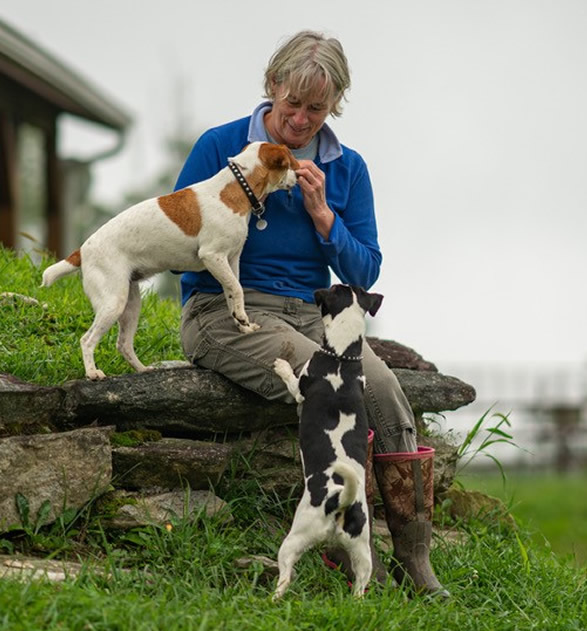
Sustainability in multiple forms
At the center of the farm’s rolling pastures stands our red timber frame barn and farmhouse, which has a spectacular year-round view of Bald Top Mountain to the south. Forests of mature oak, hickory, birch, poplar, sourwood, locust, maple, and ash ring the grassy slopes, shading the edges. Boer goats and Kangal dogs rest in sturdy shelters designed in the style of the Adirondack sheds found along the Appalachian Trail. Heritage breed pigs and laying hens enjoy peace and safety, thanks to the Kangal dogs that secure the perimeter. A chorus of howls from the dogs begins at the first scent of a bear or coyote-and that’s all it takes to deter any predator from coming close. A pair of Danish-Swedish Farmdogs patrol the fenced areas around the house for mice and snakes.
Every structure on the farm, from the farm store to the woodshed, is crafted from wood harvested onsite. Once trees are selected, felled, and cut to length, the logs are then skidded using a logging arch over rough terrain with a team of draft horses. What wood isn’t good enough to mill for lumber is split and stacked for fuel-for use in an outdoor furnace/boiler that heats the house and the domestic hot water supply. Tubing in our home’s concrete floors cycles heated water to regulate the room temperature. A solar panel array on the roof generates more than enough energy for the entire farm, and the excess goes back to the grid. There’s no interruption in the electricity supply in a power outage, thanks to back-up lithium-ion batteries that are connected to the photovoltaic system. In fact, the farm can function indefinitely because it’s totally energy independent.
Our seasonal vegetable garden provides table fare, as well as scraps for the pigs. Blueberry bushes and raspberry canes offer an abundance of fresh fruit in the summer. Delicious wineberries and other wild edible plants and mushrooms are easily found in seasonal foraging walks around the farm. Each spring, hundreds of bare-root evergreen seedlings are planted in the sunnier areas of the forest for Christmas trees. Eventually, when these mature, folks will be able to come out and harvest their own. We have placed dozens of white oaks logs in the forest that have been inoculated with nine species of choice edible mushroom spores; these will provide mushrooms for both the table and the farm store soon.

Learn More About the American Woodcock Featured in Our Logo
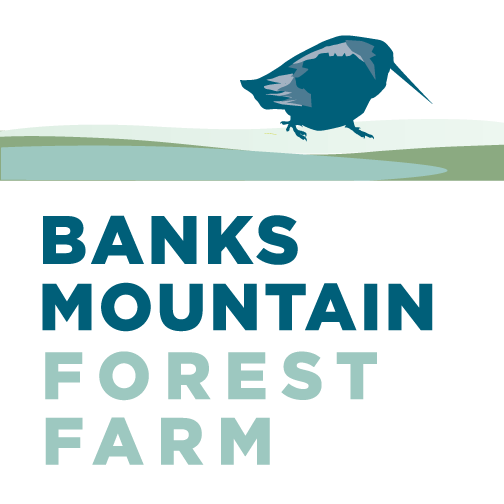
Our Most Popular Products


